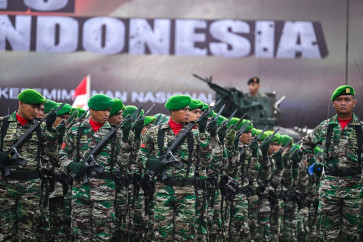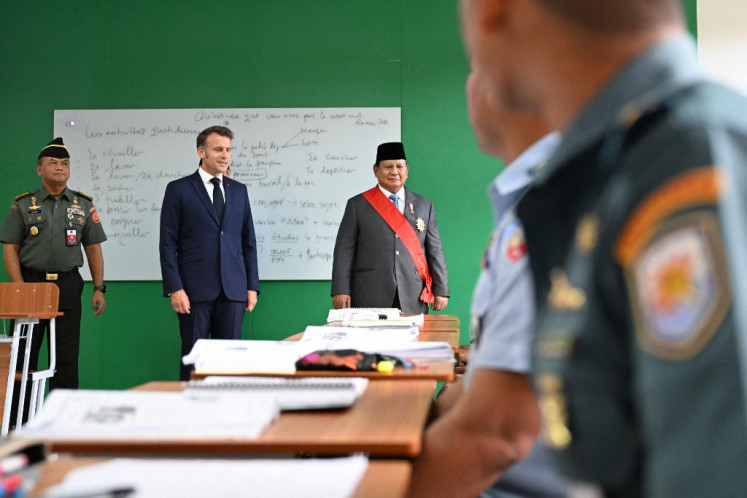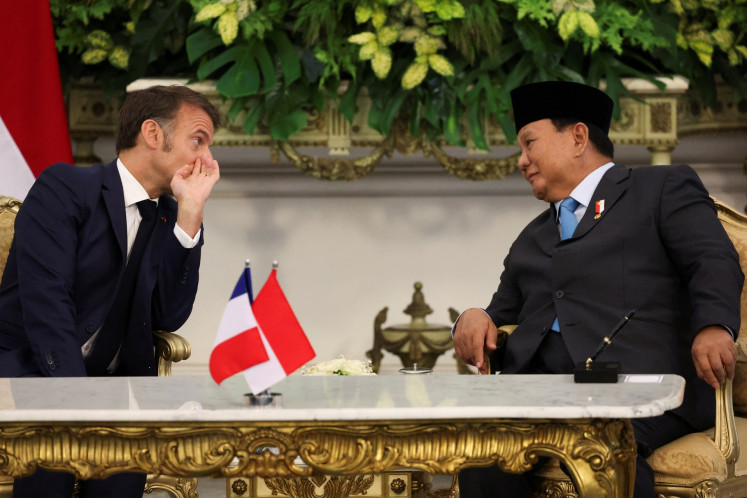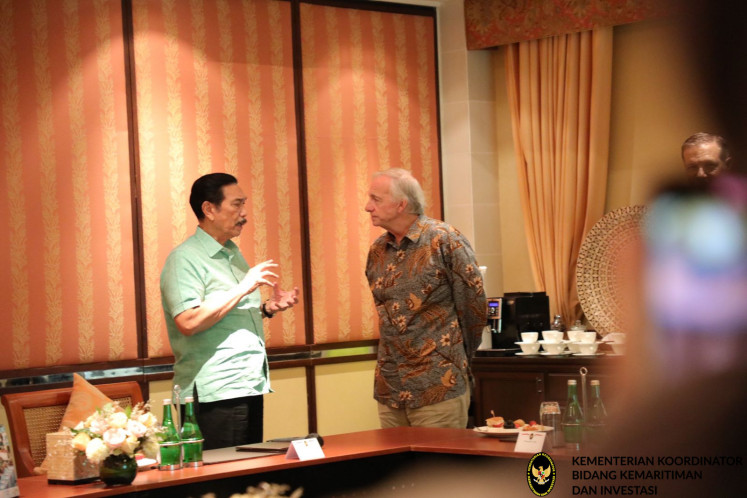Chinatown Festival brings joy, peace to Glodok community
The post-Lunar New Year celebration of Cap Go Meh on Tuesday and Wednesday in Glodok, West Jakarta, has brought together Jakartans in a festive mood, setting aside the memory of the once-divided community during the 1997 gubernatorial election
Change text size
Gift Premium Articles
to Anyone

T
he post-Lunar New Year celebration of Cap Go Meh on Tuesday and Wednesday in Glodok, West Jakarta, has brought together Jakartans in a festive mood, setting aside the memory of the once-divided community during the 1997 gubernatorial election.
Abdul Khoirudin, 57, helped his granddaughter, Atika, 4, climb up on his shoulder so that she could get a view of “A Thousand Hands of the Kwan Im Goddess”.
The dance performance about the Chinese goddess of mercy was held on Tuesday at the main stage in the courtyard of Pancoran Chinatown Point, a new mall in the heart of Glodok.
Abdul and Atika were among the thousands of Jakartans that flocked to the former site of the legendary Gloria shopping area, which had burned down in 2009, to enjoy the two-day Cap Go Meh festival marking the 15th and final day of the Chinese New Year celebration.
“We took the busway from our home in Jelambar to enjoy the festivities,” said Abdul, who was wearing a black baju koko top and black peci traditional cap — considered the proper attire for going out among many elderly Betawi men.
The festival offered the usual barongsai (lion) dance, the liong (dragon) dance and a parade, as well as the gambang kromong orchestra and ondel-ondel giant puppet performances of the Betawi culture that is native to Jakarta.
Visitors could also enjoy Betawi dishes like kerak telor (a kind of omelet), tape uli and others that are rarely found.
Abdul admitted that Chinese and Betawi residents had experienced recent tensions, especially after the identity politics of the 2017 gubernatorial election and toward the 2019 general election. But he said he never let it affect him personally.
“[Such tensions] are only real on TV, not in real life,” Abdul said. “I personally like watching Chinese cultural performances like these. As long as I don’t eat pork, it’s fine with me!” he said, laughing.
The festival was designed to entertain all visitors, Meirlyen Lelami, the financial controller and spokesperson of Pancoran Chinatown Point, told The Jakarta Post.
“This is the second time we have held this festival here. We want to welcome all people to enjoy the festivities,” she said, adding that the new mall had opened in September 2018.
“Last year, people could only gather in the courtyard, but now they can go inside to eat and shop after watching the performances,” she said.
Meirlyen said the main stage hosted singers, dancers and theatrical performances to represent the best of the Chinese and Betawi cultures.
“Inside the mall, in the atrium, is a calligraphy demonstration and a painting exhibition,” she said.
Meirlyen said the concept for the mall was to be a relaxing public space at the center of Jakarta’s original Chinatown.
“Six months after opening, elderly Chinese have come here regularly to sit and enjoy the live music, which we provide every two hours in the atrium,” she said.
“We also have authentic Chinese food tenants upstairs, as well as retail shops selling Chinese [decorations]. This is like a one-stop point if you want to experience the earlier days of Chinese settlements in Jakarta,” she said.
Jakarta Governor Anies Baswedan expressed his appreciation for the festival, saying that he wanted Chinatown to flourish, not merely preserved.
“If we preserve a culture, it will only end up in a museum. If we let it flourish, it will grow along with the times. The next generation will also take care of it,” Anies said during the festival.
“I hope the Glodok Chinatown, which has existed since the colonial era, will flourish and become a part of the present and the future,” he added, stressing that Jakarta “should be home to all”.
“This is our city, our land. We have to maintain peace between all Jakartans. This festival is attractive not only for Jakartans, but also for global citizens. Chinatown should be a major tourist destination in the capital city,” he said.









